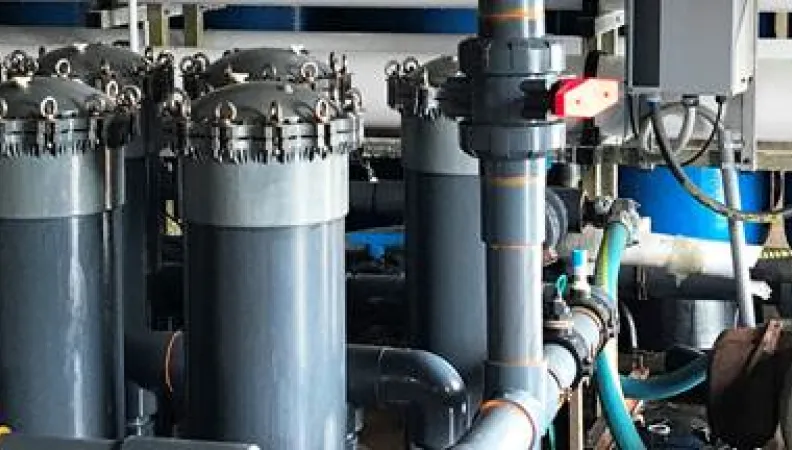Share the page
Desalination of seawater using solar energy (RODESOL)
Project


-
Project start date
-
Status
Completed
-
Estimated date of project termination
-
-
Project financing date
-
-
Financing duration
-
2 Years
-
Type of program
-
FFEM
-
Global financing amount
-
676 000 €
-
FFEM financing amount
-
184 000 €
-
Project lead member institution(s)
-
French Ministry of Economy and Finance
-
Country and region
-
Mauritius
-
Location
-
Rodrigues
-
Beneficiaries
-
MASCARA NT
-
Type of beneficiary
-
private sector



Water supply is a major problem for small island communities. To address this, the solar-energy seawater desalination technology developed by Mascara allows drinking water to be produced at low cost and in an environmentally-friendly way. The FFEM has financed its installation on Rodrigues Island.
Context
By 2030, 3.9 billion people will be living under water stress. Reverse osmosis desalination is one of the solutions used to address this along coastlines. However, every year the desalination of 21 billion cubic metres of water to meet this growing demand generates 80 million tonnes of CO 2. Mascara has perfected a more sustainable solution, with an innovation that’s set to disrupt reverse osmosis by utilising renewable energies-based technology operating through solar energy, incurring neither pollution nor prohibitive cost. A feature making it particularly well-suited to small isolated island communities, which are lacking in both energy and economic resources. The FFEM has supported Mascara in the construction and commissioning of the innovative OSMOSUN technology on Rodrigues Island, through financing under the Private Sector Innovation Facility.
Description
The project has three components:
- Constructing a solar seawater desalination unit delivering 80 m3/d, supporting and training the personnel who will be tasked with implementing and operating the unit after the first year.
- Reducing costs and the environmental impact of electrical generators thanks to desalination by solar energy.
- Offering an alternative technology appropriate to the low logistical and technical capabilities of island communities. That, in time, will liberate them from the need for regular procurement of fossil fuels, which are often difficult to obtain.
Impacts
- Use of renewable energies aligned perfectly to the climate initiative, Global Clean Water Desalination Alliance H2O minus CO2 (GCWD) for clean desalination.
- Production of low-salinity waste and the commissioning of an industrial-scale drinking water production facility using zero CO2 solar desalination.
- Production of drinking water with very low recurring costs (30 to 35 euro cents/m3). The technology envisaged offers a three- or four-fold reduction in operating costs, since energy-related costs are close to zero.
Exemplary and innovative characteristic
The OSMOSUN technology developed by Mascara is a world-first and offers a seawater desalination technology that uses solar energy without batteries. Ecological and renewable, it is also cost-effective since it allows isolated island communities to access new technology suited to their needs and technical/logistical capabilities. The project is a benchmark for all the islands and coastal regions in the Indian Ocean.
Sustainable Development Goals
ODD6 Clean water and sanitation

ODD11 Sustainable cities and communities

ODD13 Climate action



